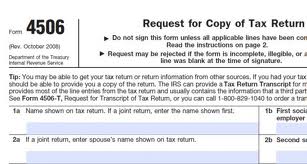Mortgage Interest Rates are near historic lows. You want to refinance?
Common mistakes, and what NOT To Do
There are a lot of things “not to do”. I will point out only the 3 most common mistakes I see people make.
- Setting an unrealistic goal. I always get inquiries from people who say something like, “I have a 30 year fixed rate loan at 5.875% and I will refinance ONLY when rates get to 4.0% with no closing costs”. Sometimes I call people back and say, “Why 4%? why not 3% or 2%? They say, “Well rates are not going to go that low”. Right and they are unlikely to go to 4% with no closing costs also (“no closing cost” loans typically cost anywhere from 1/2% to .75% higher than the going interest rate) You should first succumb to the fact that once you can lower your rate with no out of pocket expense, you should probably refinance. Don’t draw unrealistic interest rate lines in the sand. They get blown away too easily.
- The “Once rates start dropping, they are going to continue to drop and I’m smart and I am going to lock when rates hit the bottom of the market” syndrome. It is very hard to guess the interest-rate cycle, and pretty hard to catch the bottom. Remember that rates can rise fairly quickly.
- “If the rate goes down just another 1/8th percent, then I’ll lock” This one just kills me! I see people lose all the time over this theory. If your current rate is 5.875% and today’s rate is 4.875%. LOCK & CLOSE! Most people have what I call “interest rate block”. They get a rate stuck in their head, and that is the rate they want, no matter what. Most people fail to realize (and most loan officers fail to show them), that the difference on the average loan over 1/8th a percent is usually less than $15 per month. If you can save $150 per month on your loan at today’s rate, why gamble? Why hold out for another $15 when the odds are against you?
 Don’t get piggy. Work with us. Set a goal and lock when it gets there. Are we going to hit the bottom? Probably not. Are we going to save you money? Yes. If you can save money with no out of pocket costs, than you have nothing to lose. If you want to gamble go to Las Vegas. It’s a heck of a lot more fun. Apply Now
Don’t get piggy. Work with us. Set a goal and lock when it gets there. Are we going to hit the bottom? Probably not. Are we going to save you money? Yes. If you can save money with no out of pocket costs, than you have nothing to lose. If you want to gamble go to Las Vegas. It’s a heck of a lot more fun. Apply Now
Extra Tricks to Save Money When Refinancing
The purpose of most refinance loans is simply to save money. The goal is to minimize your expense over the life of the loan or to minimize your monthly payment in the near future.
If you can swing it, don’t roll every cost of refinancing into your new loan. Most people escrow for taxes and insurance. If you do, your current lender must give you escrow refund within 30 days of paying off their loan. Your new lender, be it us or someone else, must take the equivalent amount of money (or more) at closing to start the new escrow account.
Remember that you always get to skip a month of payments. If you close June 5th, your first new payment is August 1st.
Knowing this, paying some of your closing costs out-of-pocket will save you even more money in the long run. Why roll in $4000 in closing costs, when you really only need to roll in $2000 ($1000 escrow refund + $1000 missed payment = $2000). Paying that $2000 over 30 years doesn’t make sense if you don’t have too.
On the other hand, some people love the fact that they didn’t pay anything out of pocket to refinance, got a nice escrow refund check, then got to miss a mortgage payment. They use the ‘extra’ money to pay bills, go on vacation, etc. 
Picking a Lender & Closing Costs
Shopping for a home loan is confusing. No matter what we’re looking for — from cars to refrigerators’ — there’s a built-in element of confusion. Why? Lack of knowledge. An unfortunate rule of thumb is that the less we know about something we need to buy, the more we can expect to pay for it.
Shopping for a mortgage in Minneapolis, St Paul, Duluth, Rochester, Madison, Milwaukee, and throughout all of Minnesota and Wisconsin is complex at best — even for the savvy previous home owner. Daily rate changes, time-sensitive lock-in periods, points, lender’s fees… plus the emotional element of probably the largest financial deal any of us will ever make. Throw in to this already murky stew the ingredients of tricky internet mortgage rate advertising, commissions for every officer, agent and broker who ‘helps’ in your transaction, and the obscure differences between ‘rates’ and ‘fees.’ It’s no mystery that many buyers settle for a home loan that exceeds their monetary means out of sheer exasperation!
Please review our information on closing costs and “BAD Good Faith Estimates“. There is currently a large number of fly-by-night lenders doing some incredibly misleading rate & closing cost advertising. Remember, if it sounds too good, it probably is! Also check out my article “Best Rate or Lowest Cost” for more loan comparison information.
The Bottom Line
Remember, the first rule is that there are no rules. You should refinance if it makes sense for you. Every person & situation is different. What makes sense for one family, may not make sense for you. Call me today to discuss your wants, needs, and goals. Together we’ll determine if refinancing makes sense for YOU.
Click here for more information on the actual loan process.
Click here for 10 Tips to a Smooth Closing
Click here for 10 Mistakes to Avoid
 Myth #2 – APR & Interest Rates are the same thing / Shop by APR
Myth #2 – APR & Interest Rates are the same thing / Shop by APR


 Don’t get piggy. Work with us. Set a goal and lock when it gets there. Are we going to hit the bottom? Probably not. Are we going to save you money? Yes. If you can save money with no out of pocket costs, than you have nothing to lose. If you want to gamble go to Las Vegas. It’s a heck of a lot more fun.
Don’t get piggy. Work with us. Set a goal and lock when it gets there. Are we going to hit the bottom? Probably not. Are we going to save you money? Yes. If you can save money with no out of pocket costs, than you have nothing to lose. If you want to gamble go to Las Vegas. It’s a heck of a lot more fun.